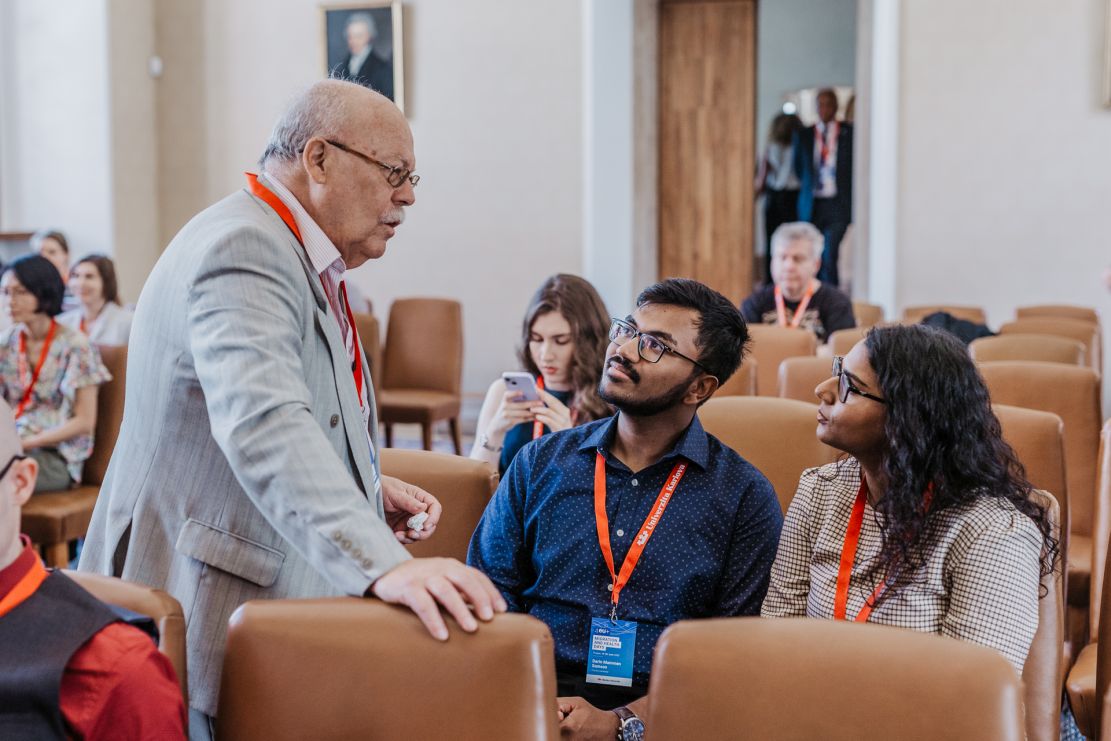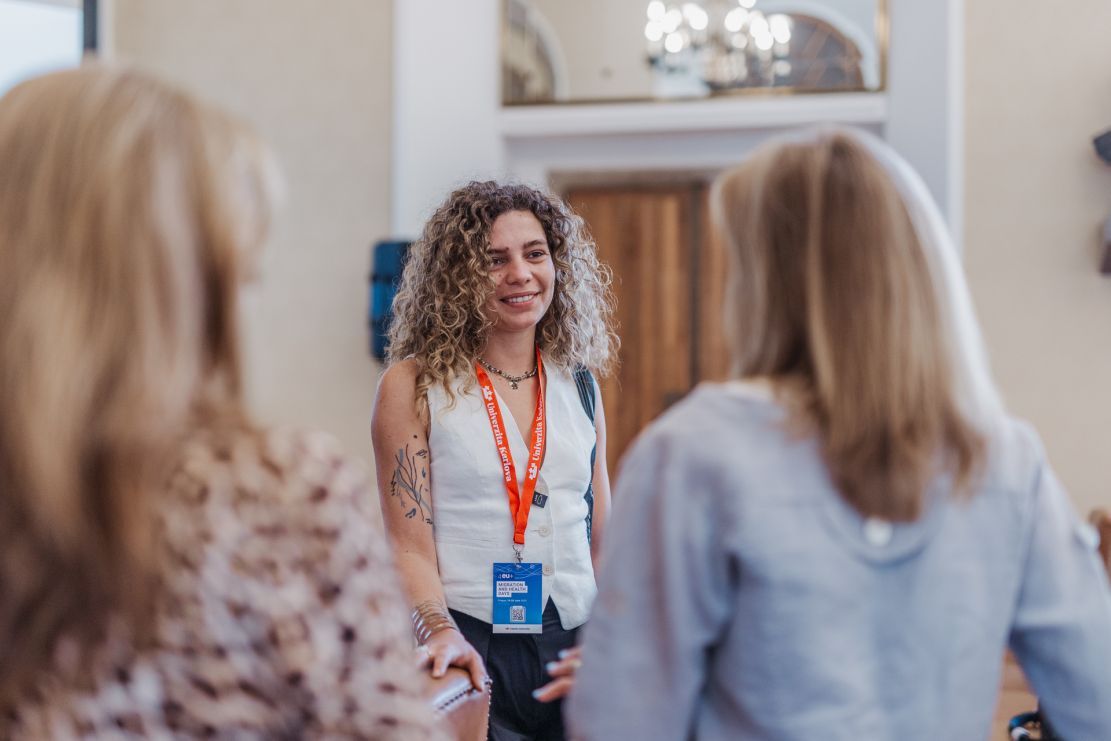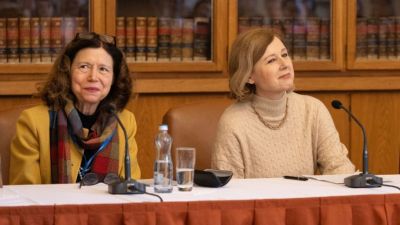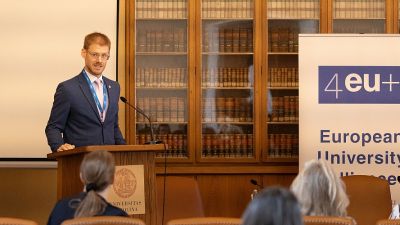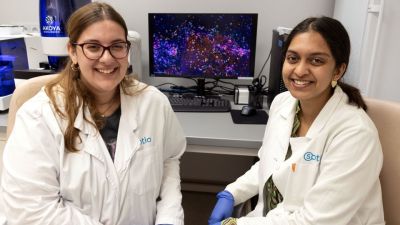Charles University is hosting the 4EU+ Migration and Health Days, a highly-anticipated conference bringing together not only representatives of the university alliance but also key experts, policymakers, UN, WHO and NGO representatives. The event kicked off on Thursday afternoon with a brief welcome from CU’s Lenka Rovná, followed by the recently confirmed Secretary-General of 4EU+ Elena del Giorgio.
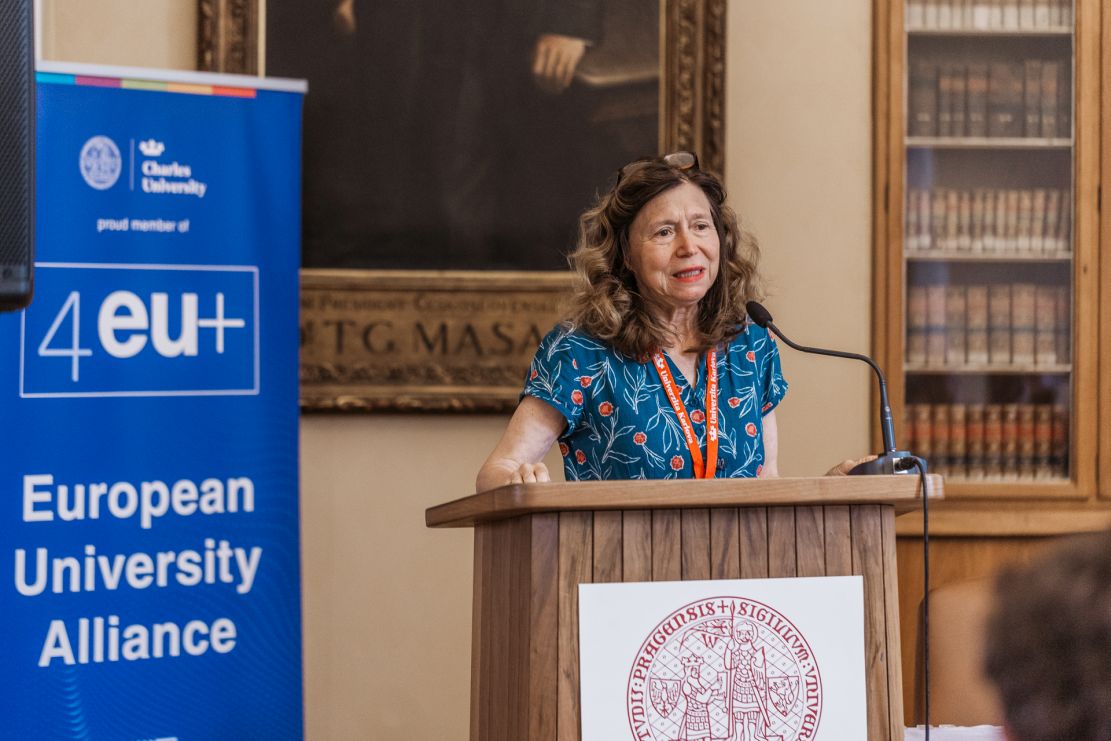
Lenka Rovná opens conference at CU on 19 June 2025.
Both made clear that it is exactly universities that need to play an outsized role in fostering interdisciplinary dialogue — dedicating, contributing, and combining research and information to tackle serious issues that are growing harsher by the day. Elena del Giorgio:
“Despite enormous efforts we know that the challenges remain immense. We know what the literature tells us. I still have the pleasure of teaching students and I always remind them that behind the data, behind all the numbers are people. People’s lives and destinies. We should always remember that.”
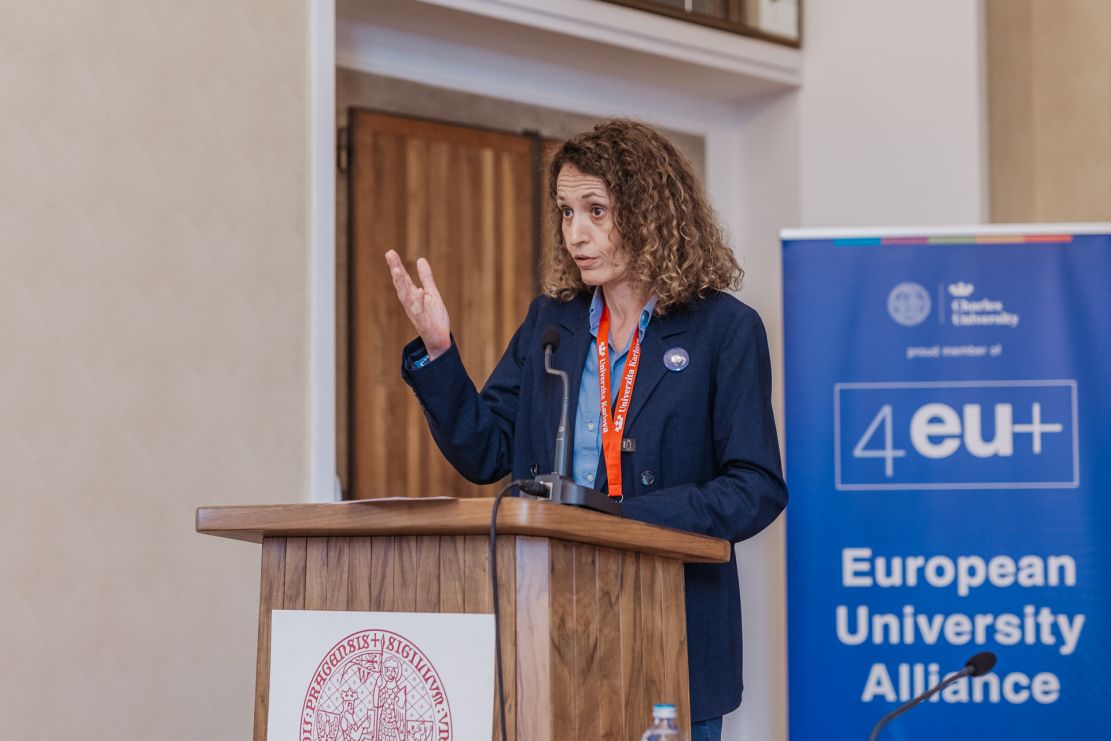
Secretary-General of 4EU+ Elena del Giorgio.
She added that migrants continued to face many problems and remained the most vulnerable when it came to, for example, infectious diseases to mental health based on traumatic circumstances many find themselves in. She pointed out the 4EU+ Alliance supported the call of WHO towards equitable health systems and had itself fostered a lot of related activity within its Flagship 1 programme.
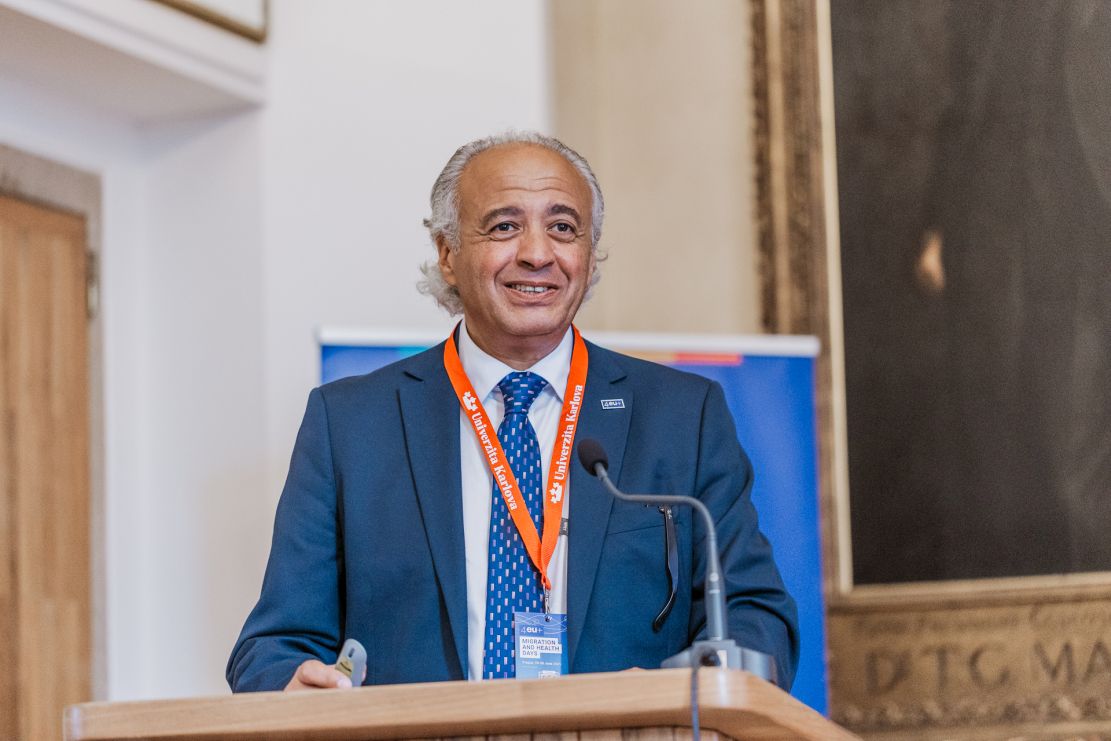
Khaled Ismail is the main organiser of the two day event at Charles University focusing on migration and health.
Problems have risen at a rather sobering, constant clip, but Charles University’s Khaled Ismail, overseeing the entire conference, urged different points of view as being of major importance when tackling what can seem like impossible challenges to counter:
“Migration is often framed as a challenge yet is a driver of diversity and a driver of innovation, of resilience and prosperity and equality. Many species rely on migration for their existence, including the most challenging species of them all: humans. Migration and health has been prioritised within the alliance… I was pleased that our colleagues at the University of Geneva suggested we cooperate with the Geneva Health Forum as a way of changing the story about migration and health and this happened in the busiest possible week: the assembly week itself. By any measure this session was both an inspiration and a success.”
Global warming is spurring migration both internally and internationally. Its impacts intersect with health care delivery, public health outcomes, and the functioning of systems overall. Above all, speakers noted, the aim is to help people facing increasingly difficult conditions country to country — from armed conflict to heat waves and drought, from flooding to an increase in disease.
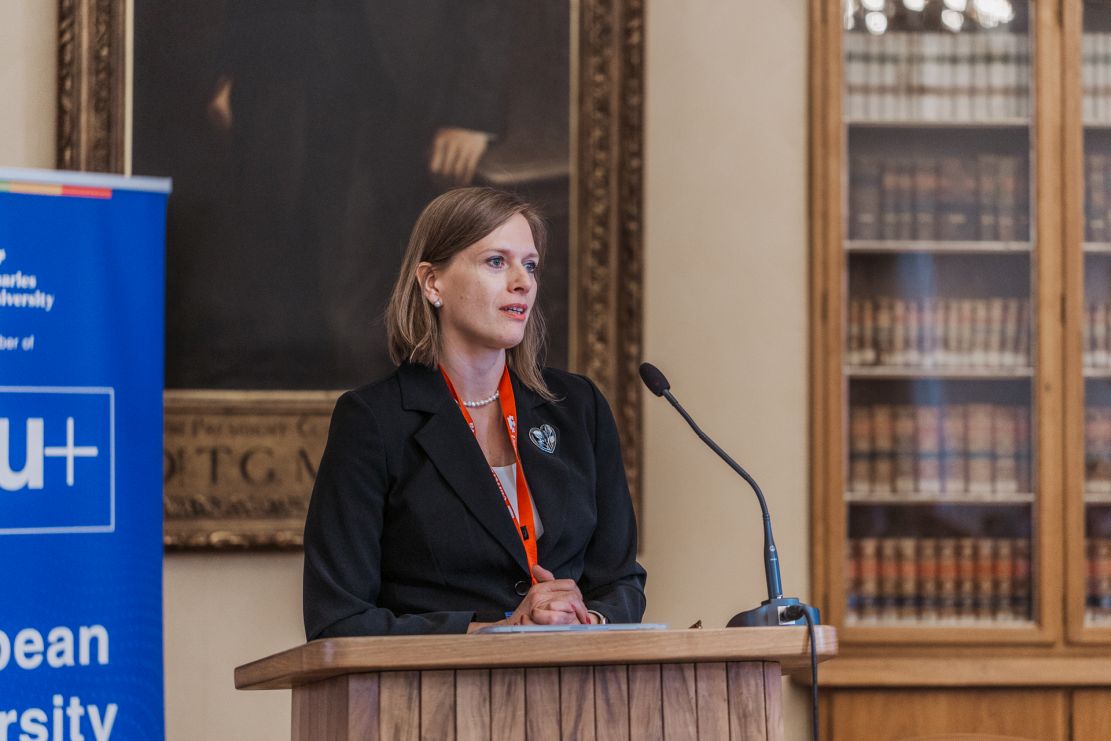
Veronika Hunt Šafránková of UNEP on 19 June 2025 at the Carolinum at CU.
Another of the esteemed guest speakers, like those who preceded her, also noted, “It’s about people. The planet will take care of itself.” That speaker was Veronika Hunt Šafránková, the head of the UN Environment Programme Brussels Office, who gave a sharp presentation offering a broad overview of critical shifts today that are threatening stability and mass wellbeing. These included the relationship between humans and their environment — termed a relationship in flux — as well as mass forced displacement and growing resource scarcity.
Hunt Šafránková went into great detail explaining the many areas where UNEP is involved. One example could serve for the rest, but there was indeed the sense that the factors are increasing and that it will require all our effort to curb further negative developments and keep Europe on track to reduce greenhouse gas emissions to help limit global warming to 1.5°C above pre-industrial levels, which is a target set in the Paris Agreement.
“UNEP’s mandate is scientific and policy as well… we are trying to save the planet for the sake of the people. We have record-breaking climate events, increased numbers, increased intensity and scale, impacting the whole world. By 2050, 25 percent of the global population of adults will be exposed to dangerous chronic and acute heat extremes, so heat is one of the significant health impacts, affecting some 246 million older people in Africa and Asia, but the numbers in Europe are also very much increasing.”
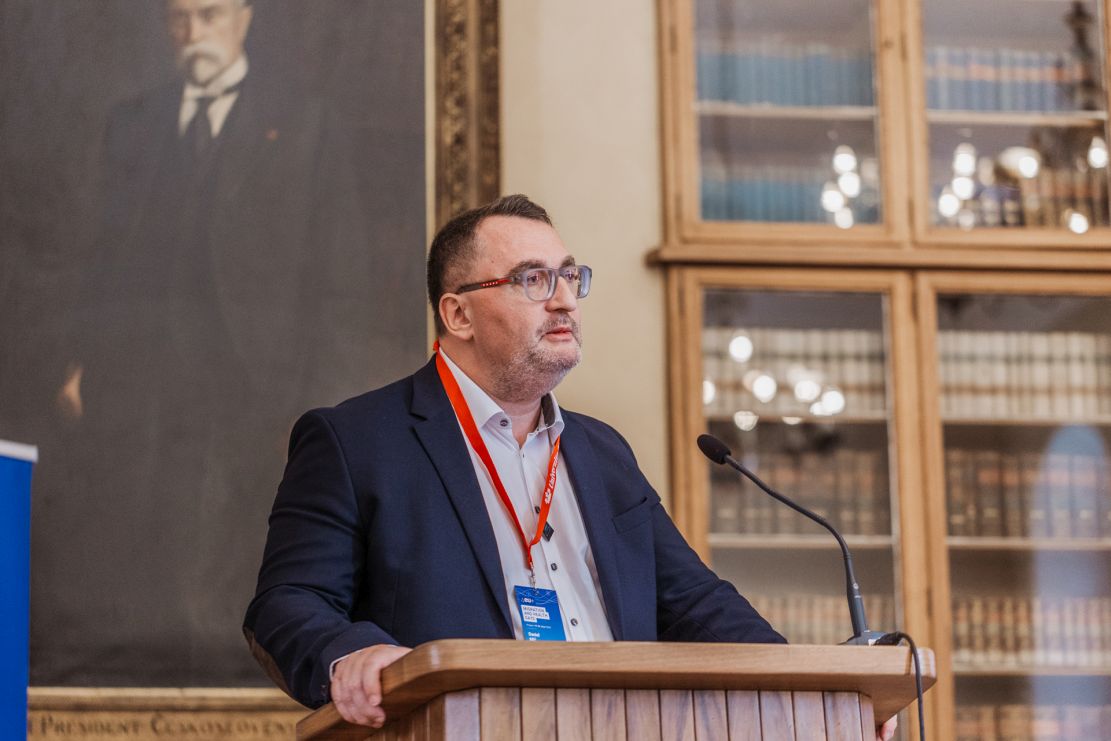
WHO's Daniel Míč - one of the key speakers at the two-day event this year at CU.
She was followed by fellow Czech-born compatriot Daniel Míč, who works at WHO Health and Migration in WHO Headquarters with a main focus on high-level advocacy and governance. All four opening presentations set the stage for a wide range of topics and discussion to continue throughout Friday — from climate-driven migration trends and epidemiological insights on immigrant communities to the mental health challenges faced by displaced families. The programme also includes hands-on sessions focusing on global healthcare competencies and strategic science communication.
Charles University’s social media stressed that the line-up of expert voices and practical workshops was designed to spark meaningful exchange across institutions and disciplines — all within the framework of one of the prestigious university alliances. Since 2018, the alliance has shown that while a lot can be said for management and top-down solutions, equally — or perhaps even more valuable — are research initiatives and cooperation from the ground up.
Students played an active and meaningful role throughout the event, particularly on the second day, which was dedicated to highlighting the intersection of education and research within the 4EU+ Alliance. Four student-led workshops formed the core of this day, offering participants the chance to engage in research-based education firsthand. These sessions were designed to help students develop valuable competencies. By taking the lead, students stepped into the roles of educators and facilitators, deepening their own learning while contributing to the conference’s broader educational objectives.
The 4EU+ Migration and Health Days conference was organized within the framework of the 1CORE project, aiming to strengthen collaboration across the 4EU+ Alliance. The initiative sought to foster synergies between academic research and teaching by encouraging institutional ecosystems to co-create opportunities rooted in current scholarly challenges. The event served not only as a forum for knowledge exchange in the fields of migration and health, but also as a dynamic learning environment where educational and research goals could be pursued in parallel.
For those interested in exploring the full programme and speaker list, more information is available at the 4EU+ website.


